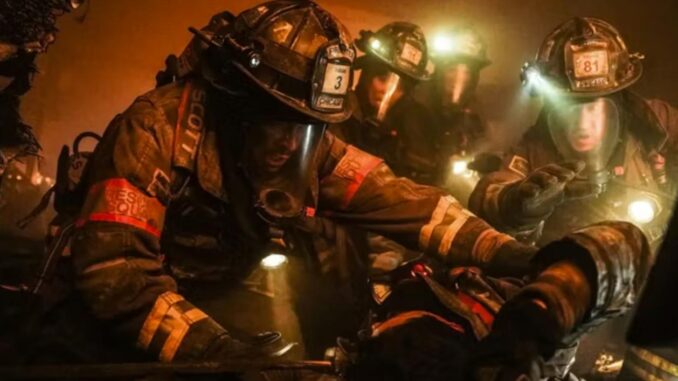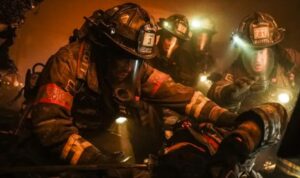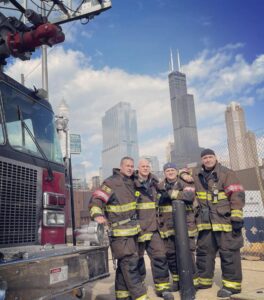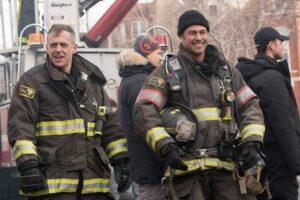
Vice President Kamala Harris is busy preparing for her presidential acceptance speech at the Democratic National Convention in Chicago. Soon enough many stories will be written and broadcast about how the Democrats once gave away a presidential election after a tumultuous convention in that same metropolis.
Like all important chapters in history, the Democrats’ implosion at their 1968 convention is worth studying. But it won’t be repeated. This time is different because Harris and her party know who the enemy is. That was not the case in ’68.

The Democratic convention was supposed to be a referendum on the war in Vietnam. Instead, the question of whether the U.S. government should continue sending soldiers to die in Southeast Asia was reduced to an afterthought.
The bigger story became a battleground encompassing two city parks and several streets near the arena where conventioneers assembled. For locals and the national television audience, the convention became about whether Chicago Mayor Richard J. Daley and his police force were righteous in their attacks — verbal and physical — on anti-war demonstrators, reporters and innocent bystanders.
Mike Royko, the great Chicago columnist, summed up the chaos in this passage: “As the final session of the 1968 Democratic convention got underway, the chairman of the New Hampshire delegation was being dragged screaming from the International Amphitheater by the cops. And it seemed perfectly normal. In another time and another place, it might have been big news. But now everybody had to be dragged somewhere.”

Democrats in 1968 nominated Vice President Hubert Humphrey to succeed his boss, Lyndon Johnson, as president. Humphrey and his fractured party could not recover from their convention by election day. He lost the presidency to Republican Richard Nixon, who continued the war in Southeast Asia for another four years.
Harris faces no such difficulties. She should breeze through her convention from Aug. 19-22. Whatever disagreements pop up regarding the Democratic platform won’t overtake her message.
She and every other person who steps in front of a microphone will speak of the danger Republican nominee Donald Trump poses to freedom. Many will highlight Trump’s attempts to subvert the 2020 election after he was beaten by Joe Biden. Trump’s conviction this year on 34 felony charges also will be highlighted. Jurors found he tried to influence the 2016 election by paying hush money to a pornographic actor who said she had sex with Trump.
Harris’ convention will be canned and choreographed. The danger for her is the event becomes so dull it stalls the momentum she seized after replacing 81-year-old Biden as the Democratic nominee.
Trump at the beginning of the year prattled about making “a heavy play” to win five states he’s lost in the last two presidential elections: New Mexico, Virginia, Minnesota, New York and New Jersey.
Three factors have dampened his chances of breaking through in any of those places. Foremost is the excitement Harris has generated in her nascent campaign.
Second, Harris’ choice of Minnesota Gov. Tim Walz as her running mate weakens Trump’s faint hopes in Minnesota, a state that has not gone for a Republican since it supported Nixon in 1972.

Third, Trump inflicted a wound on himself with his recent race-based attack on Harris. There Trump sat, in Chicago of all cities, a tubby, privileged white guy falsely claiming Harris denied being part Black for most of her life. With venom worthy of the late shock jock Don Imus, Trump succeeded only in inspiring more voters to get behind Harris.
Her next challenge is winning over independents and dissatisfied Republicans during a convention that will be without spontaneity.
In 1968, poor Hubert Humphrey left Chicago having to remind Democrats what the election was about. Nixon is the target, not Mayor Daley, Humphrey would say again and again.
Sen. Eugene McCarthy, Humphrey’s main rival for the nomination, had campaigned on quickly ending the Vietnam War. His cause went nowhere because of the divisive convention culminating in Humphrey’s nomination.
McCarthy and Humphrey were both sons of Minnesota, but they didn’t share common ground or feelings of goodwill. McCarthy waited until the month before the election before announcing he would vote for Humphrey. Nixon could not have written a better divide-and-conquer script than the real-life discord Democrats provided.
Since ‘68, political conventions have become more scripted and less eventful. Historians and handlers say Daley had a lot to do with that.
As criticism rained down on his head-cracking police officers, the mayor made an announcement: He was giving his cops a raise.
